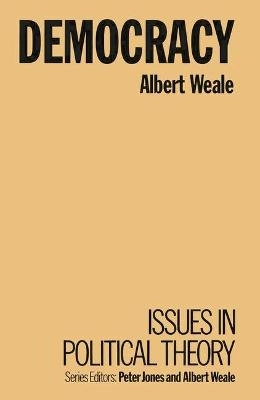

Democracy
- Utgiven: 1999
- ISBN: 9780333567548
- Sidor: 256 st
- Förlag: Macmillan
- Format: Inbunden
- Språk: Engelska
Om boken
Åtkomstkoder och digitalt tilläggsmaterial garanteras inte med begagnade böcker
Mer om Democracy (1999)
1999 släpptes boken Democracy skriven av Albert Weale. Den är skriven på engelska och består av 256 sidor. Förlaget bakom boken är Macmillan.
Köp boken Democracy på Studentapan och spara pengar.
Referera till Democracy
Harvard
Oxford
APA
Vancouver



















